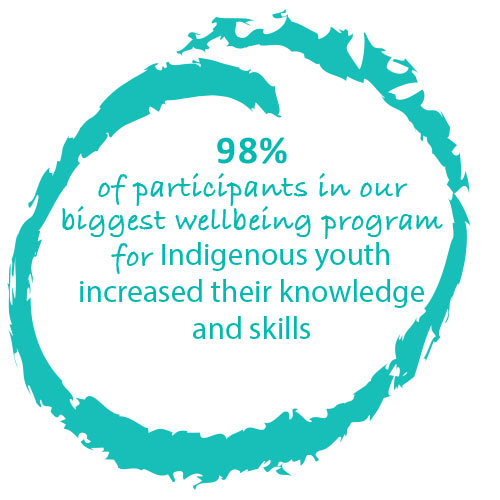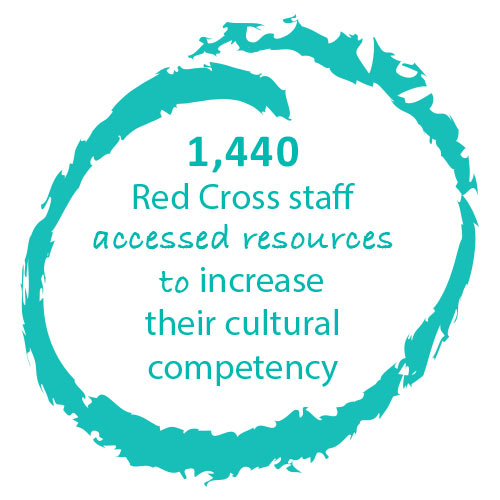Red Cross works with Aboriginal and Torres Strait Islander peoples to build their capacity for sustainable local solutions, using their abundance of skills and knowledge to work towards a safe and healthy future with all other Australians.
It is unacceptable that Australia’s First Peoples are disadvantaged across many social indicators. Indigenous people die at a much younger age than non-Indigenous people, have higher rates of disability and chronic disease, and their rates of adult imprisonment are worsening.
Red Cross works respectfully and collaboratively with Aboriginal and Torres Strait Islander peoples, organisations and communities. Our strategy focuses on place-based solutions in specific locations of disadvantage, including many remote areas.
We aim to become a humanitarian organisation of choice for First Peoples, whether they come to us as beneficiaries, staff, volunteers or supporters. In pursuing this goal, we doubled the percentage of Aboriginal and Torres Strait Islander staff working with us from 2012 to 2015. This year we focused on training more staff members in cultural competency and were awarded co-winner of the Indigenous Employment Award from the Australian Human Resources Institute.
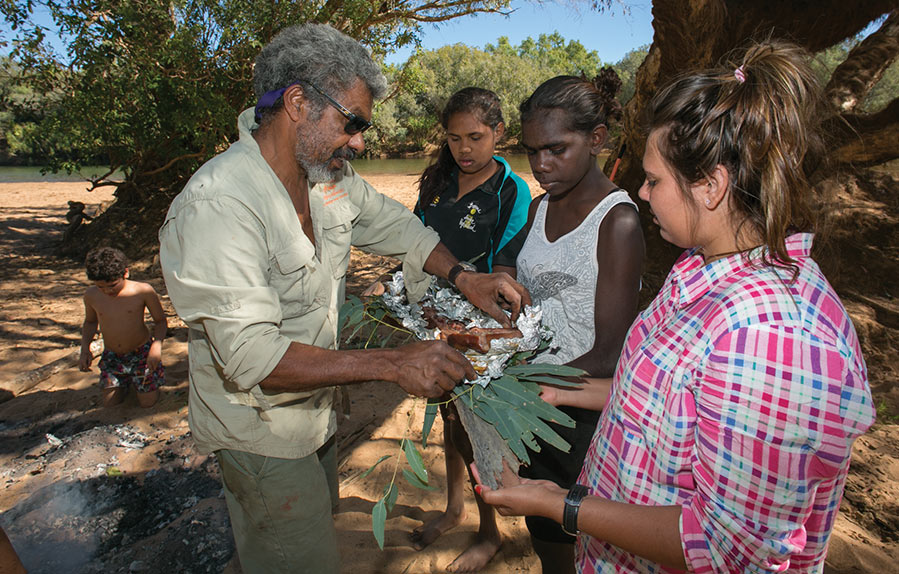
Uncle Neville Poelina shares cultural stories and skills with young people at a Red Cross camp on his traditional lands – Udialla Springs on the Fitzroy River, in Western Australia.
Australian Red Cross/Michael Torres
Some snapshots of our local, community-driven work across Australia
In Western Australia, we provide safe, short-term accommodation in the Kalgoorlie Boulder region for Spinifex Aboriginal people travelling for a range of health and personal reasons. The Tjuntuntjara community is closely involved in the running of the facility and many staff members are locals.
In Cairns, we run a wellbeing centre offering quality, affordable accommodation in a culturally safe environment for up to 80 people from rural and remote Far North, Cape York and Torres Strait Island communities, many of whom come to access the Cairns Base Hospital. The centre partners with local agencies to deliver a range of services for guests receiving medical treatment, like cooking classes, fishing, gardening and antenatal classes.
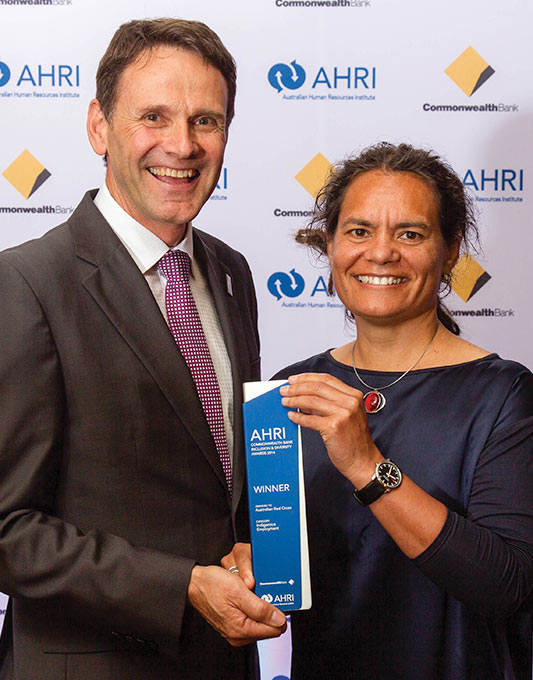
Chris Steinfort (Director of Human Resources) and Nicole Jenkins (Workforce Engagement Manager) receive an Indigenous Employment Award from the Australian Human Resources Institute on behalf of Red Cross. This award acknowledges our commitment to engage and support Aboriginal and Torres Strait Islander staff throughout our organisation.
Australian Red Cross/Kerry Klimm
Following a tragic incident in Cairns in late 2014 where eight children lost their lives, we seconded our local regional manager to lead a community recovery project. Following culturally sensitive negotiations with the affected families and wider community, we co-managed the demolition of the house where the tragedy occurred and led various creative activities to help in the community’s psychological healing process.
We partner with a number of local agencies on the remote Northern Territory island of Galiwin’ku. In April 2015, an internal evaluation of our early childhood health initiatives in the area found that children’s health and wellbeing has improved, the numbers of children with anaemia and problems gaining weight have been reduced, children are attending playgroup and preschool in higher numbers, more kids are accessing available local services, and parents’ confidence in looking after their babies has increased.
In New South Wales, we supported women in the Karuah Aboriginal community to re-open a children’s breakfast club, introduce social and skills-based activities including a sewing group and weaving workshop, and start a not-for-profit community kitchen, the Mission Chew Café. The women have bought exercise equipment for the local women’s shed with funds raised through the café, helping with their goal to get fit and create a healthier community.
